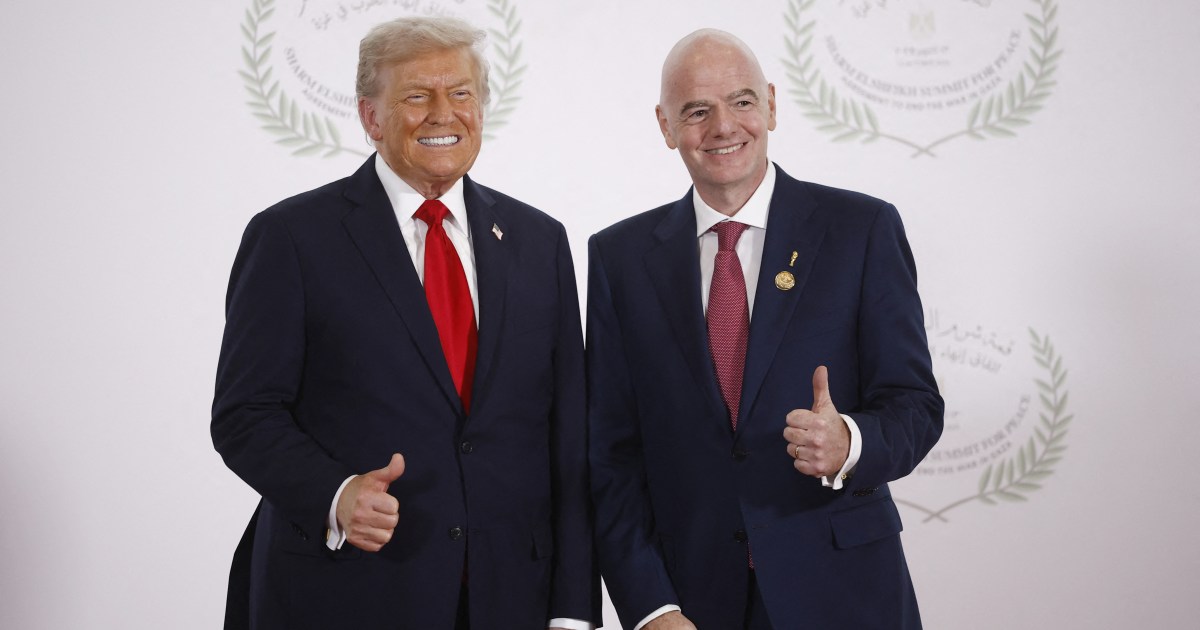Real Madrid and Softtek announce the renewal of their global strategic partnership, after three years of collaboration that have transformed the way millions of fans live their passion for Real Madrid. Since 2022, Softtek has been instrumental…
Blog
-

CDA Chairman, Azerbaijani delegation discuss establishment of ‘Asan Khidmat Markaz’ in Islamabad
Chairman Capital Development Authority (CDA) Muhammad Ali Randhawa on Tuesday met with a delegation of architects and consultants from Baku, Azerbaijan, here, to discuss bilateral cooperation on the establishment of the Asan Khidmat Markaz — a…
Continue Reading
-

Azerbaijan to facilitate ‘Asan Khidmat Markaz’ in Islamabad
The Azerbaijani delegation, representing the State Agency for Public Service and Social Innovations, assured full technical cooperation for the project, including assistance in design and the integration of…
Continue Reading
-

A strange, dark object found in space is warping the Universe. Scientists still don’t know what it is
Astronomers have found a small, dark object that’s so impossible to see, it can only be detected by the way its gravity distorts space.
It’s the lowest-mass dark object ever found in the Universe, and was discovered by using a global network of…
Continue Reading
-

Why was FIFA President Infantino with Trump at Gaza peace summit in Egypt? | Football News
EXPLAINER
FIFA boss Gianni Infantino was among attendees in Egypt, continuing a string of appearances with the US president Donald Trump.
FIFA President Gianni Infantino’s participation in Summit for Peace held in Sharm El-Sheikh, Egypt on Monday…
Continue Reading
-

Glasgow’s Celtic Connections unveils 2026 festival programme
 Sally Zarzour
Sally ZarzourThe Ayoub Sisters are among the acts announced for Celtic Connections Glasgow’s Celtic Connections festival has revealed its line-up for 2026.
It will feature a tribute to legendary folk singer Dick Gaughan, an appearance from the…
Continue Reading
-

Maldives achieves historic triple elimination of mother-to-child transmission of diseases
In a landmark public health achievement, the World Health Organization (WHO) has validated the Maldives for eliminating mother-to-child transmission (EMTCT) of hepatitis B, while maintaining its earlier validation (in 2019) for…
Continue Reading
-

CNMC Merger Prohibition: Spain Blocks Curium/IRAB Acquisition
Broadly framed concerns
The CNMC focused on two markets linked to cancer detection tests where the parties’ activities overlap:
- The supply of PSMA PET radiopharmaceuticals where the CNMC found the parties have combined market shares of over 80%
- The provision of PET radiopharmaceuticals contract manufacturing services (CMO) to third parties in north-eastern Spain (Operators without their own infrastructure (cyclotron) depend on these services to supply PET radiopharmaceuticals and, post-merger, the CNMC says their supply options would be reduced from three to two.)
The authority is concerned that the transaction will result in higher prices and reduced product variety, as well as increased barriers to entry and expansion, and possible foreclosure of rivals.
Significantly, the CNMC also alleged that the merger may lead to coordinated effects between the two remaining cyclotron operators in north-eastern Spain, meaning they may be more likely to coordinate their conduct and harm effective competition.
Behavioral remedies were not enough
Curium offered “a series of commitments” to address the CNMC’s concerns. These were all behavioral commitments, including to:
- refrain from manufacturing or marketing its PSMA from IRAB’s Barcelona cyclotron facility until other PSMA radiopharmaceuticals are effectively commercialized in north-eastern Spain
- continue marketing IRAB’s PSMA under the same conditions for a minimum period of time
- increase certain manufacturing capacity at IRAB’s facility
- offer any new CMO contracts with third parties at a standard level of service and on market terms
- improve the production capacity of IRAB’s cyclotron.
However, the CNMC considered that the commitments could not address its horizontal and vertical concerns, in part because of their “very limited duration.” According to the authority, the proposed commitments also failed to alleviate the risk of coordinated effects between the two remaining cyclotron operators in north-eastern Spain. Those operators had already been fined, along with two executives, a total of EUR5.76 million for adopting a joint strategy to share contracts for the supply of radiopharmaceuticals to public and private hospitals.
The CNMC ultimately concluded that no other conditions, short of blocking the deal, could resolve the alleged structural risks.
The prohibition—the CNMC’s first—is an outlier and may reflect the sensitive nature of the markets involved. Previous mergers raising CNMC antitrust concerns have tended to be resolved with remedies. And, in the majority of these cases, the remedies have comprised behavioral commitments (either on their own or combined with structural divestments), showing the CNMC’s general openness to such remedies, despite their reluctance to accept them in this case.
The CNMC’s decision is not, however, final. In the case of a phase 2 prohibition (among other scenarios), Spanish law allows for a “phase 3” review. This means that the CNMC will refer the case to the Minister of Economy, Trade and Enterprise, which will then decide whether to forward the merger to the Council of Ministers to assess if any public interest criteria outweigh antitrust considerations.
Three key takeaways
1. Expect deals with an impact on consumer health to be closely scrutinized.
Transactions in sectors that have a direct impact on consumer welfare or health—particularly those involving innovative technologies or products—will be assessed carefully by antitrust authorities.
The CNMC’s close scrutiny of markets related to cancer detection tests strikes certain parallels with the European Commission’s (EC) 2022 assessment of Illumina’s acquisition of cancer detection test developer GRAIL.
There, too, the EC blocked the merger after rejecting the parties’ offer of behavioral commitments (although ultimately the prohibition was overturned for lack of jurisdiction). The authority noted the importance of preserving competition between early cancer detection test developers and of enabling consumers to access technology at competitive prices and with a choice of suppliers.
2. Be aware that prior anticompetitive conduct may exacerbate concerns with a deal.
The CNMC’s case is not the only merger assessment where we have seen an antitrust authority refer to previous cartel conduct when articulating its concerns over the possible impact of a transaction.
Parties should expect consolidation in any sectors that have seen recent antitrust enforcement to attract special scrutiny, particularly where markets are (relatively) concentrated.
3. Explore early whether any antitrust concerns can be remedied.
The 2025 merger control enforcement landscape is shaping up to be rather different than previous years. Rising deal mortality levels are being replaced by a more permissive merger control environment, as many antitrust authorities face political pressure to support economic growth and take a pro-business approach.
However, this Spanish case is a reminder that sometimes an antitrust authority views the markets involved as too sensitive, or the antitrust concerns too complex, for a merger to be waved through.
Where antitrust hurdles are expected, early strategic planning and close engagement with authorities during pre-notification is advisable. This will enable parties, at the initial stages of a merger assessment, to test the nature of an authority’s concerns and to discuss the feasibility and acceptability of possible remedies.
Any remedy offer put forward by the merging parties should be carefully designed and robust, especially if it contains behavioral elements.
Continue Reading


